Petter Ericson
AI Alignment through Reinforcement Learning from Human Feedback? Contradictions and Limitations
Jun 26, 2024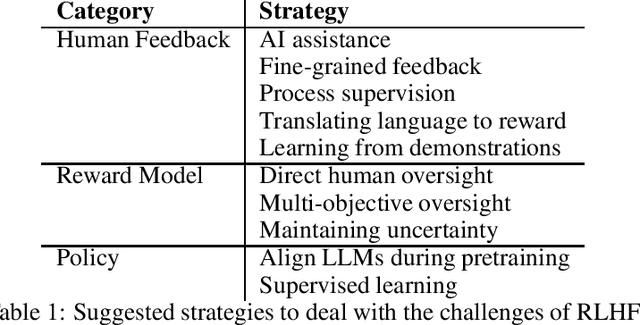
Abstract:This paper critically evaluates the attempts to align Artificial Intelligence (AI) systems, especially Large Language Models (LLMs), with human values and intentions through Reinforcement Learning from Feedback (RLxF) methods, involving either human feedback (RLHF) or AI feedback (RLAIF). Specifically, we show the shortcomings of the broadly pursued alignment goals of honesty, harmlessness, and helpfulness. Through a multidisciplinary sociotechnical critique, we examine both the theoretical underpinnings and practical implementations of RLxF techniques, revealing significant limitations in their approach to capturing the complexities of human ethics and contributing to AI safety. We highlight tensions and contradictions inherent in the goals of RLxF. In addition, we discuss ethically-relevant issues that tend to be neglected in discussions about alignment and RLxF, among which the trade-offs between user-friendliness and deception, flexibility and interpretability, and system safety. We conclude by urging researchers and practitioners alike to critically assess the sociotechnical ramifications of RLxF, advocating for a more nuanced and reflective approach to its application in AI development.
A Shift In Artistic Practices through Artificial Intelligence
Jun 13, 2023Abstract:The explosion of content generated by Artificial Intelligence models has initiated a cultural shift in arts, music, and media, where roles are changing, values are shifting, and conventions are challenged. The readily available, vast dataset of the internet has created an environment for AI models to be trained on any content on the web. With AI models shared openly, and used by many, globally, how does this new paradigm shift challenge the status quo in artistic practices? What kind of changes will AI technology bring into music, arts, and new media?
ACROCPoLis: A Descriptive Framework for Making Sense of Fairness
Apr 19, 2023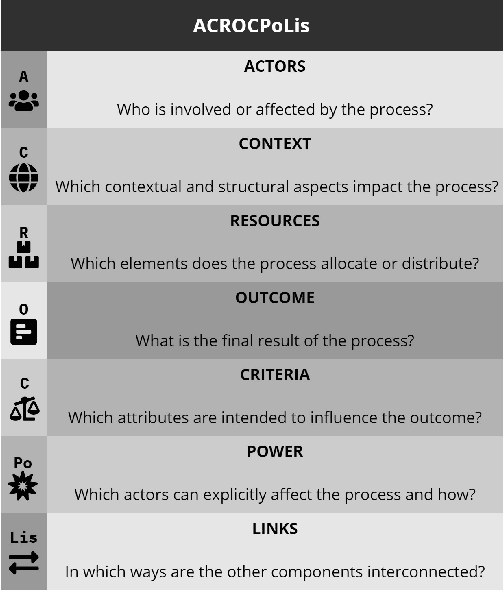
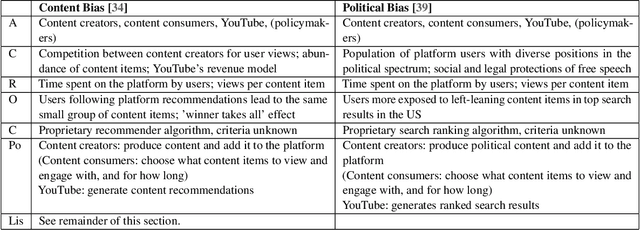
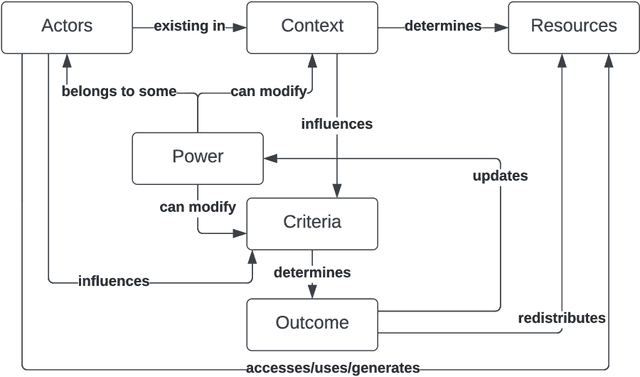
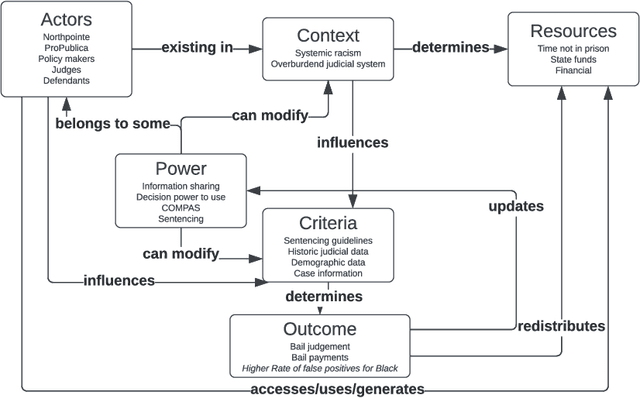
Abstract:Fairness is central to the ethical and responsible development and use of AI systems, with a large number of frameworks and formal notions of algorithmic fairness being available. However, many of the fairness solutions proposed revolve around technical considerations and not the needs of and consequences for the most impacted communities. We therefore want to take the focus away from definitions and allow for the inclusion of societal and relational aspects to represent how the effects of AI systems impact and are experienced by individuals and social groups. In this paper, we do this by means of proposing the ACROCPoLis framework to represent allocation processes with a modeling emphasis on fairness aspects. The framework provides a shared vocabulary in which the factors relevant to fairness assessments for different situations and procedures are made explicit, as well as their interrelationships. This enables us to compare analogous situations, to highlight the differences in dissimilar situations, and to capture differing interpretations of the same situation by different stakeholders.
 Add to Chrome
Add to Chrome Add to Firefox
Add to Firefox Add to Edge
Add to Edge